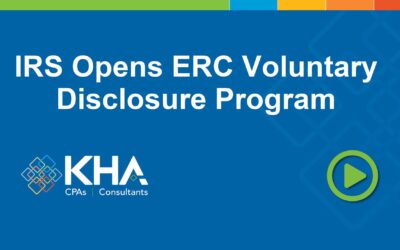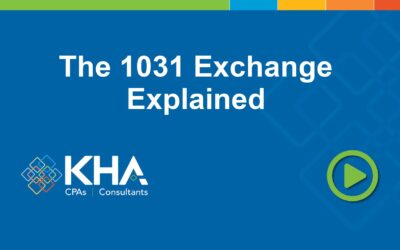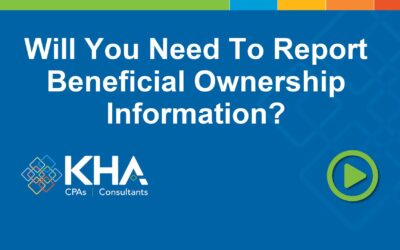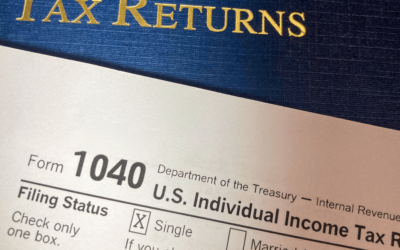Estate planning Q&A: Gifting to Intentionally Defective Grantor Trusts explained
by RSM US LLP | Jun 10, 2024
Reduce estate taxes? Consider a gift to an IDGT: The gift that keeps on giving
Frequently asked questions about profits interests
by RSM US LLP | Apr 2, 2024
Profits interest are an equity-based compensation device intended to incentivize key employees in partnerships.
Tax Tip – IRAs for Young Adults
by KHA Accountants | Mar 15, 2024
As we navigate the complexities of financial planning, one opportunity stands out for young adults: individual retirement accounts (IRAs). With the 2023 tax-year contributions deadline fast approaching on April 15, 2024, now is the perfect time to consider how you can leverage an IRA.
New Crypto Rules Likely Coming
by KHA Accountants | Mar 14, 2024
If you invest or trade in Bitcoin, non-fungible tokens (NFTs), Stablecoins, or other digital assets, prepare for sweeping new tax reporting requirements. Congress wants the IRS to crack down on taxpayers who buy and sell crypto but don’t report or pay tax on their gains.
Updated Form 8283 contains modest revisions
by RSM US LLP | Feb 28, 2024
The December 2023 revision of Form 8283 includes new reporting for digital assets, certified historic structures and passthrough entity information.
The IRS urges businesses to review ERC claims for 7 common red flags
by RSM US LLP | Feb 26, 2024
IRS urges employers to review ERC claims before the Voluntary Disclosure Program deadline of March 22, 2024. The agency warns of 7 common signs that their claims may be incorrect.
IRS releases guidance on PIN requirement for energy efficiency home improvement credit
by RSM US LLP | Jan 31, 2024
The IRS intends to release proposed regulations on the PIN requirement for the energy efficiency home improvement credit under section 25C.
Deadline for filing 2023 forms 1099 is near but beware of important changes
by RSM US LLP | Jan 24, 2024
Debt modifications that include consent fee payments can create unintended tax consequences.
Tax framework agreement sets direction for potential business and individual tax relief
by RSM US LLP | Jan 19, 2024
Debt modifications that include consent fee payments can create unintended tax consequences.
IRS Opens ERC Voluntary Disclosure Program
by KHA Accountants | Jan 17, 2024
In the world of real estate, the Section 1031 exchange has been a significant tool for investors who want to grow their real estate portfolio and wealth. In this video, we’ll explain how a 1031 exchange works and important considerations when using one.
State income tax law changes for the fourth quarter of 2023
by RSM US LLP | Jan 9, 2024
Debt modifications that include consent fee payments can create unintended tax consequences.
IRS Announces Voluntary Disclosure Program related to ERC
by KHA Accountants | Jan 5, 2024
Debt modifications that include consent fee payments can create unintended tax consequences.
The 1031 Exchange Explained
by KHA Accountants | Dec 6, 2023
In the world of real estate, the Section 1031 exchange has been a significant tool for investors who want to grow their real estate portfolio and wealth. In this video, we’ll explain how a 1031 exchange works and important considerations when using one.
Tax considerations when consent fees are paid to modify a debt
by RSM US LLP | Dec 5, 2023
Debt modifications that include consent fee payments can create unintended tax consequences.
Tax Court rules state law limited partner may be subject to self-employment tax
by RSM US LLP | Dec 1, 2023
The Tax Court ruled that holding a state law limited partnership interest is not, by itself, enough to avoid self-employment tax.
Supreme Court tax case could have outsized ramifications on income taxation
by RSM US LLP | Nov 10, 2023
The Supreme Court’s ruling in Moore v. United States could reshape Congress’ authorization to tax income.
Two Estate Planning Strategies to Help Protect Wealth
by KHA Accountants | Nov 8, 2023
A goal of estate planning is to maximize the wealth that is passed on to one’s heirs. In this video, we’ll discuss how a Spousal Lifetime Access Trust and an Irrevocable Life Insurance Trust may help you minimize estate taxes and protect wealth.
IRS Announces ERC Withdrawal Process
by KHA Accountants | Oct 24, 2023
The Internal Revenue Service (IRS) has established guidelines concerning the withdrawal of an Employee Retention Credit (ERC) claim for those employers who now believe they may not qualify. These guidelines, detailed on the IRS’s official website, outline the necessary steps a taxpayer must take to withdraw a claim for the ERC, under certain conditions.
IRS makes major Announcements regarding Employee Retention Credit (ERC)
by KHA Accountants | Sep 20, 2023
On September 14, 2023, the IRS made two major press releases regarding the Employee Retention Credit (ERC). This article summarizes significant points from those releases.
IRS halts employee retention credit processing
by RSM US LLP | Sep 15, 2023
The IRS has temporarily halted processing of employee retention credit claims and will provide additional guidance for businesses.
Why the Cost of Customer Acquisition Is So Important
by KHA Accountants | Sep 12, 2023
For any business, understanding and effectively managing the cost of customer acquisition is crucial for success. In this video, we’ll explain what it is, how it’s calculated, and how it affects a business’s profitability, cash flow, and overall growth.
IRS releases guidance on Roth catch-up contributions under SECURE 2.0
by KHA Accountants | Sep 7, 2023
The Internal Revenue Service (IRS) has recently released guidance on Roth catch-up contributions under SECURE 2.0 Act. This guidance, outlined in Notice 2023-62, provides important information for individuals who are age 50 or older and participating in a retirement plan that allows deferral contributions.
Reporting for large cash transactions must be electronically filed starting in 2024
by KHA Accountants | Sep 1, 2023
New requirements effective January 1, 2024 mandate electronic filing of Form 8300 to report $10,000 cash transactions
OCC issues 2023 edition of “Bank Accounting Advisory Series”
by RSM US LLP | Aug 31, 2023
This edition was updated to add new guidance on loan modifications, reflect the adoption of the CECL and leases standards, and more.
Estate Planning after a Business Sale
by KHA Accountants | Aug 30, 2023
After selling a business, it is crucial to update your estate plan to align with your new financial situation. This article provides and overview of common strategies to consider.
Estate planning after the sale of a business interest
by RSM US LLP | Aug 29, 2023
This article discusses estate planning and tax considerations after the sale of a business interest or other liquidity event, including common strategies to reduce estate tax and meet charitable giving goals.
Will You Need To Report Beneficial Ownership Information?
by KHA Accountants | Aug 25, 2023
The Corporate Transparency Act will require most businesses to provide beneficial ownership information to the U.S. Department of Treasury to combat money laundering. Find out who needs to report, what information is required, and when the reports must be submitted.
FASB proposes expense disaggregation to aid income statement analysis
by RSM US LLP | Aug 10, 2023
A proposed update would require disclosing compensation, depreciation and inventory costs within income statement line items.
IRS provides guidance for RMDs under SECURE 2.0 Act
by KHA Accountants | Jul 26, 2023
A recent IRS Notice provides essential guidance on required minimum distributions (RMDs) under SECURE 2.0. This article reviews that Notice and provides insights into the updated rules and deadlines for RMDs, helping taxpayers navigate the ever-changing landscape of retirement planning and compliance with IRS regulations.
IRS clarifies employee retention credit guidance
by KHA Accountants | Jul 26, 2023
The IRS has released additional guidance on ERC claims basing credit eligibility on supply chain disruptions. In a Generic Legal Advice Memorandum (GLAM) and IRS Notice, the IRS explores various scenarios and clarifies the requirements for employers to substantiate their claims.





























